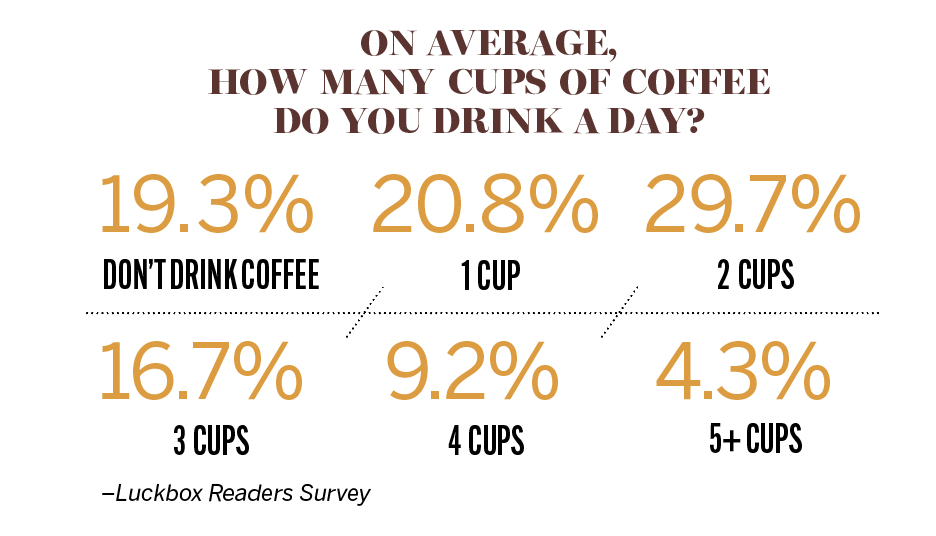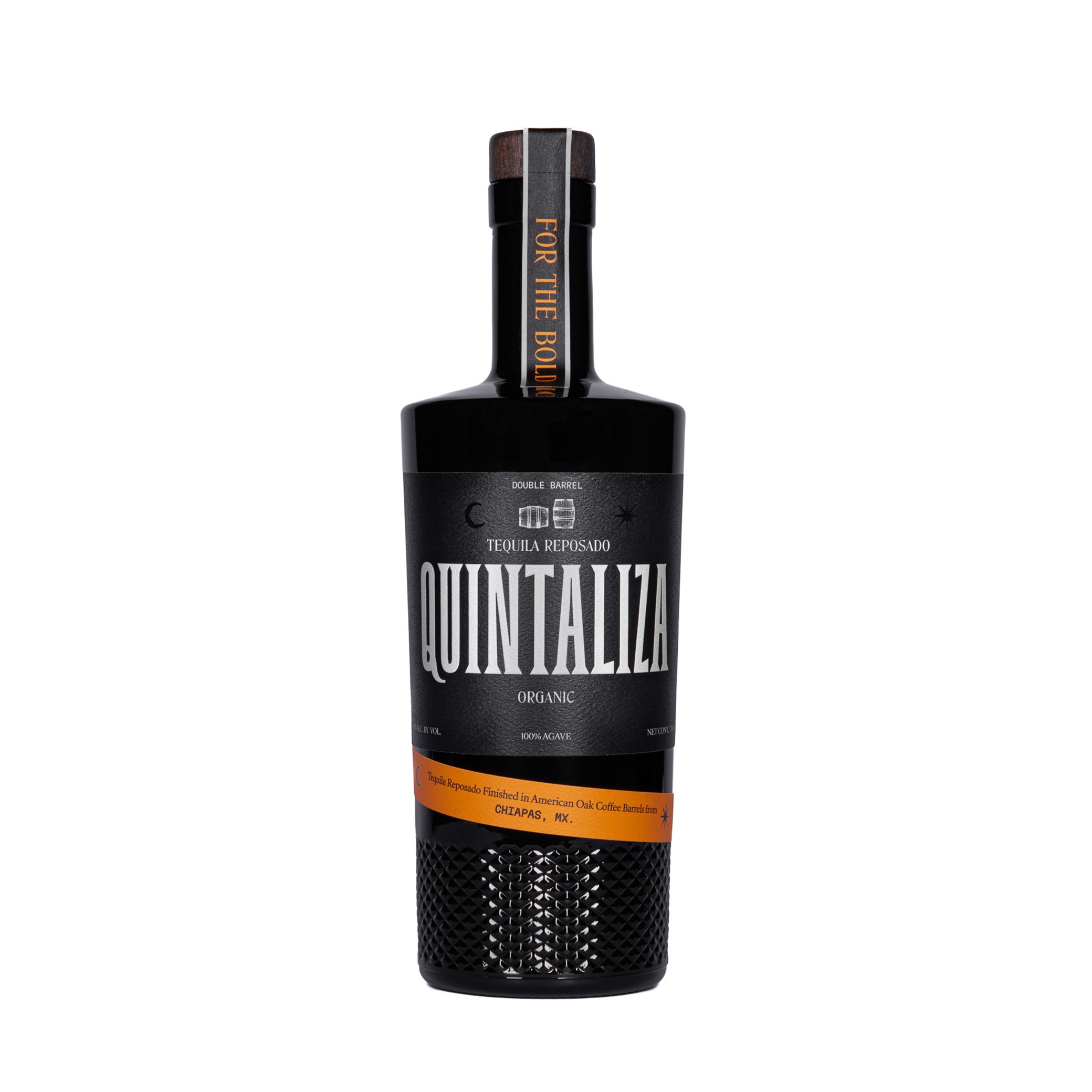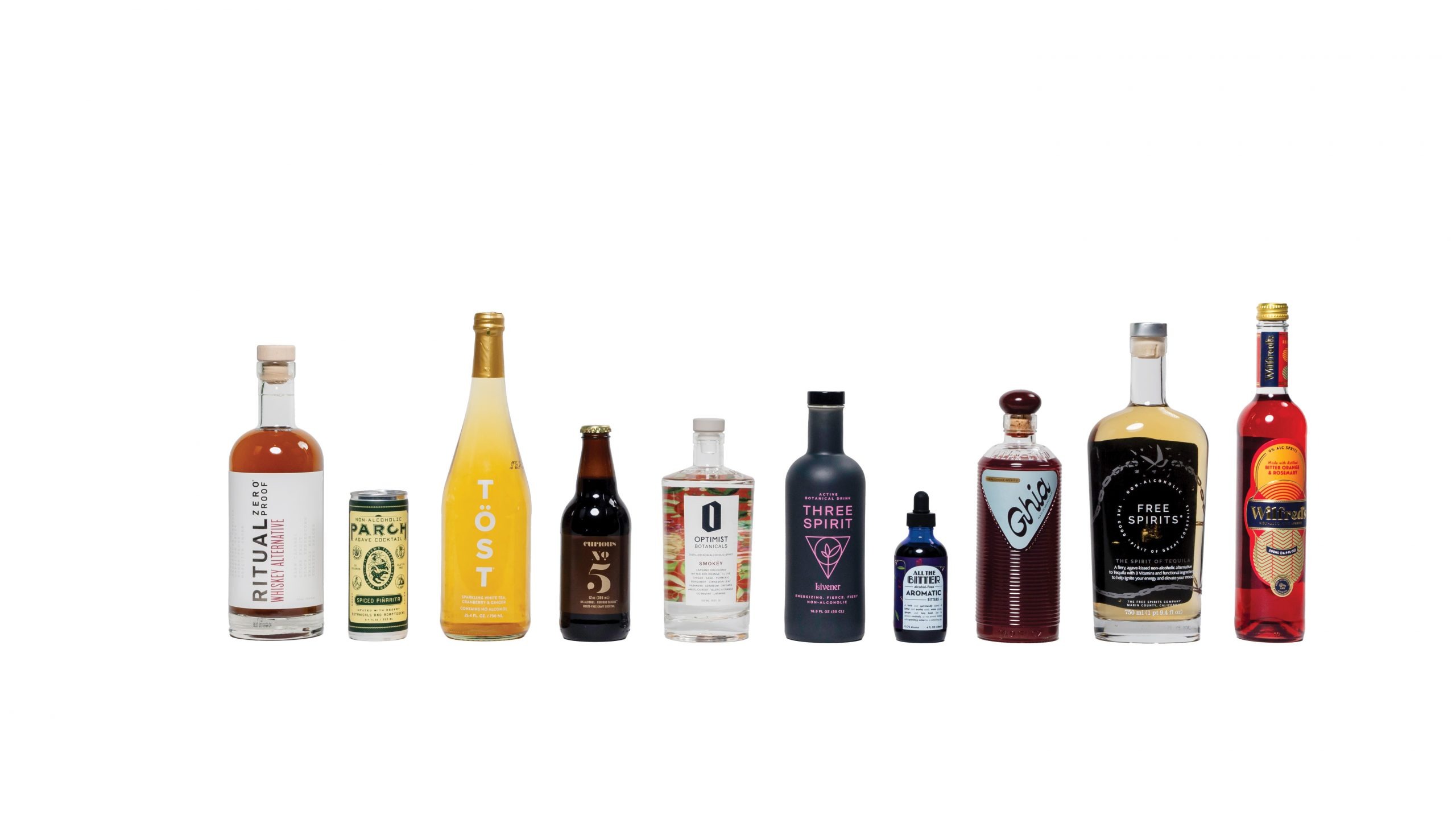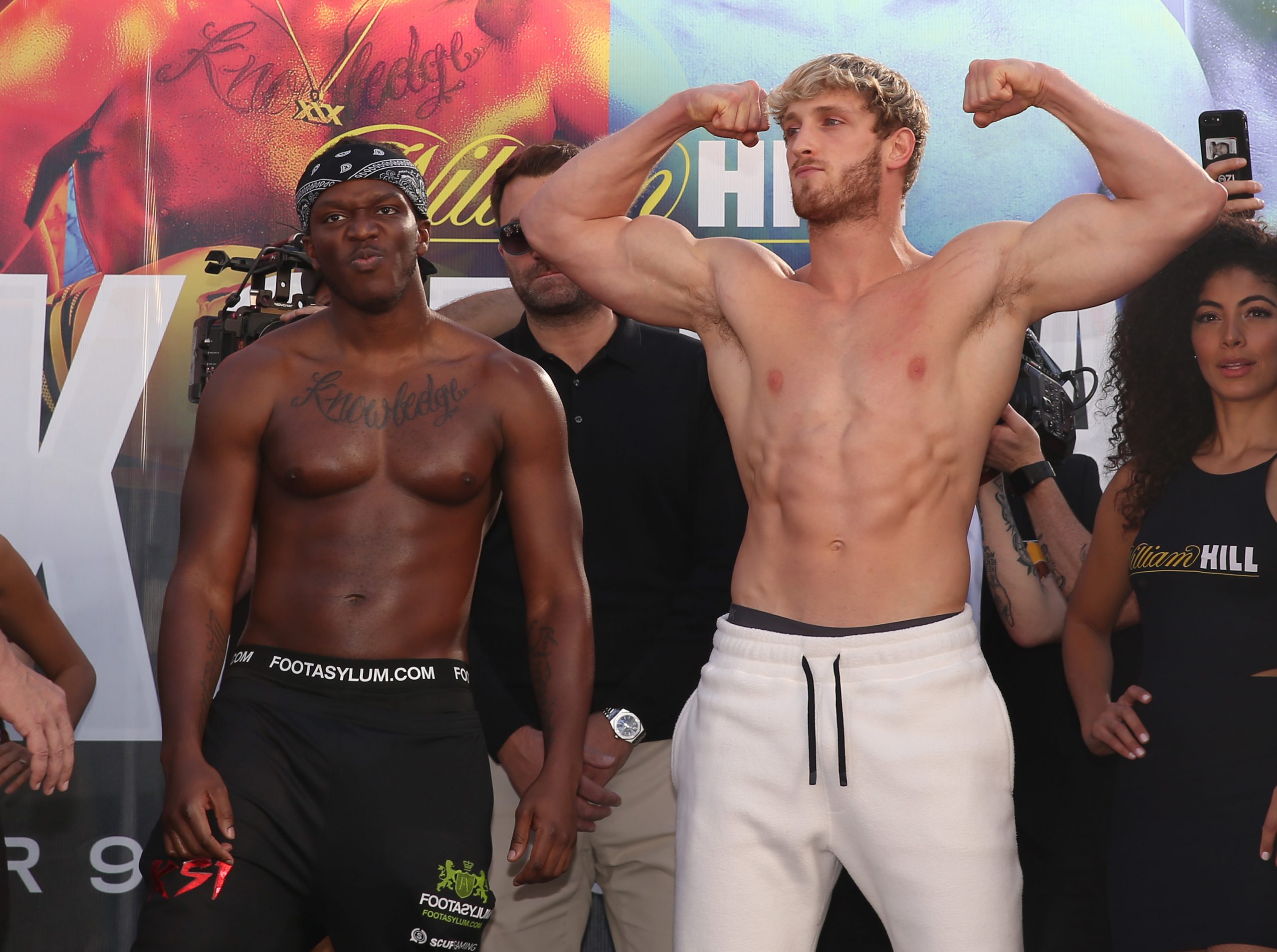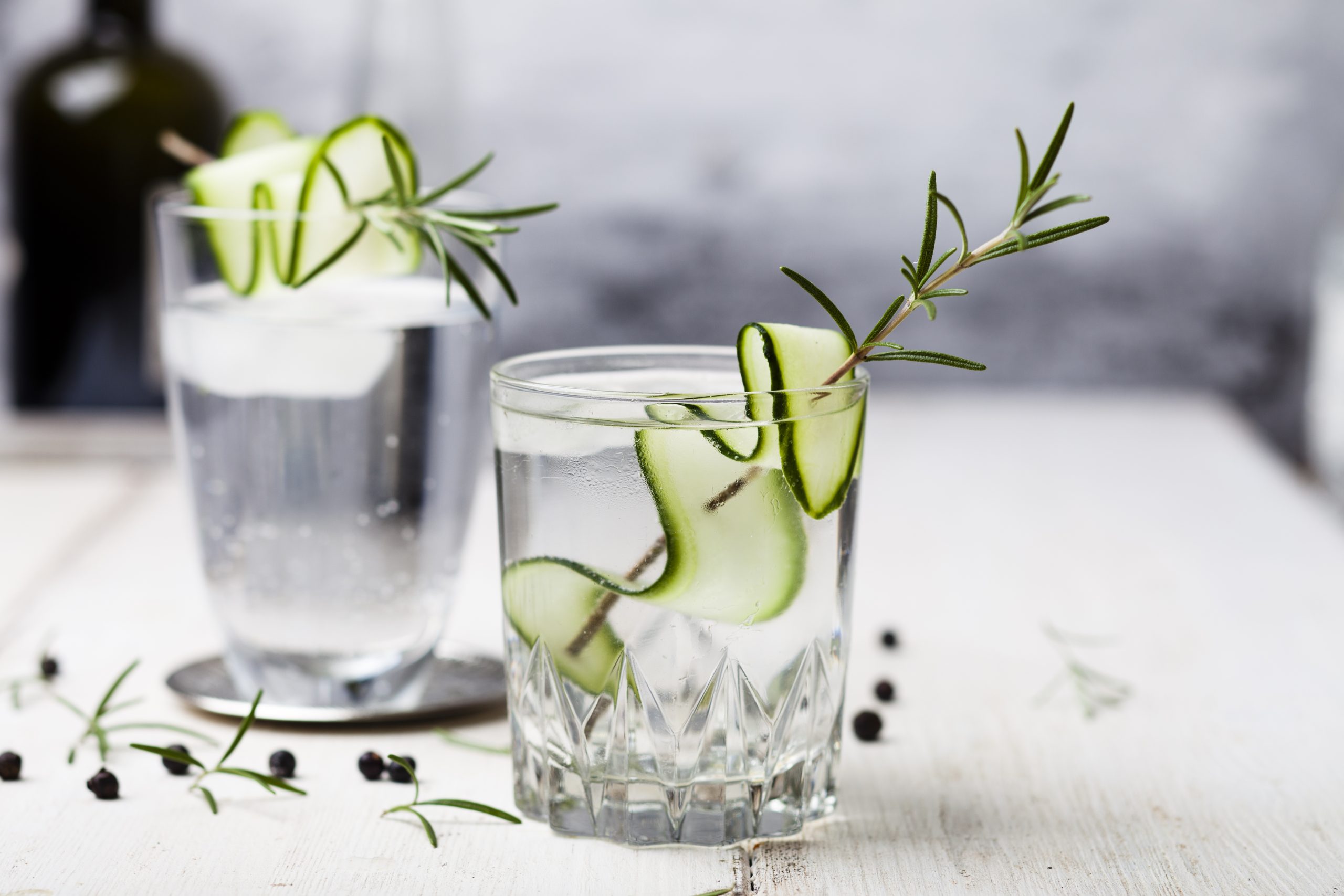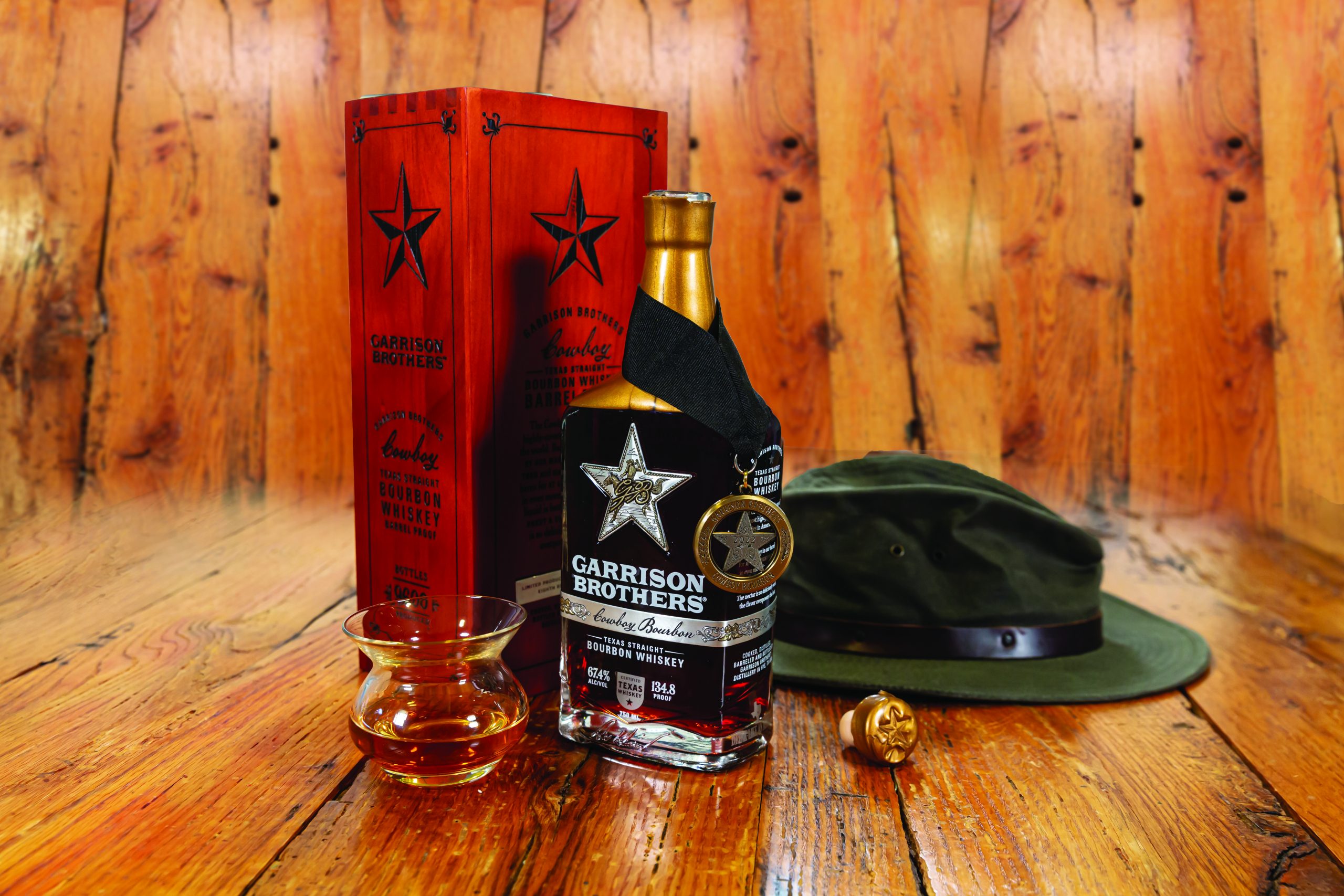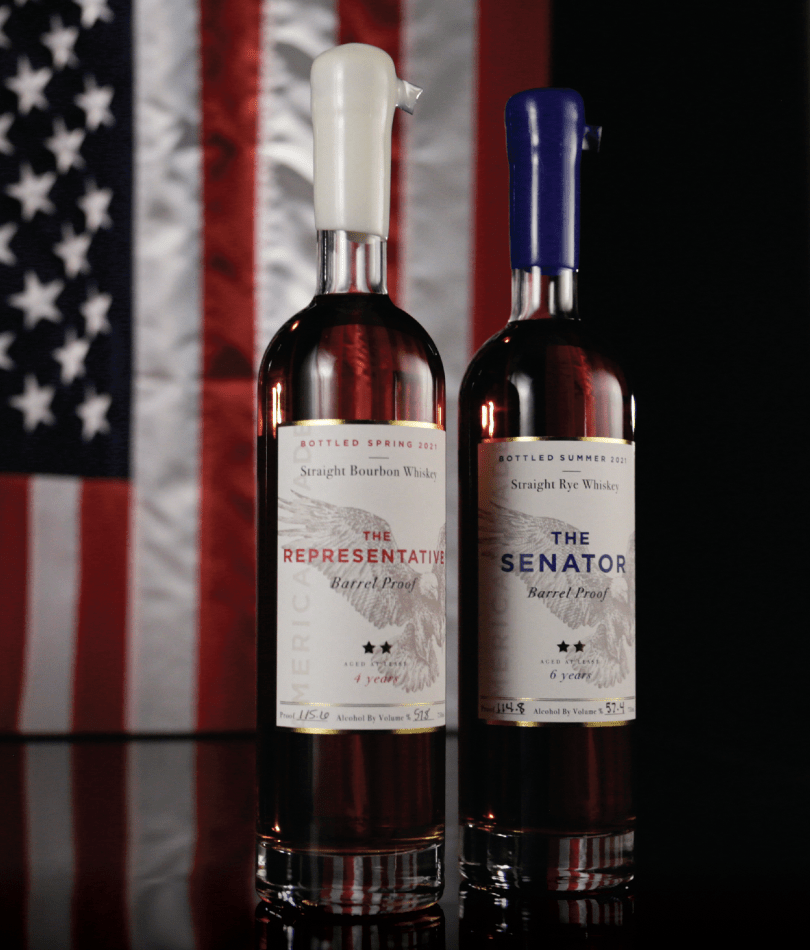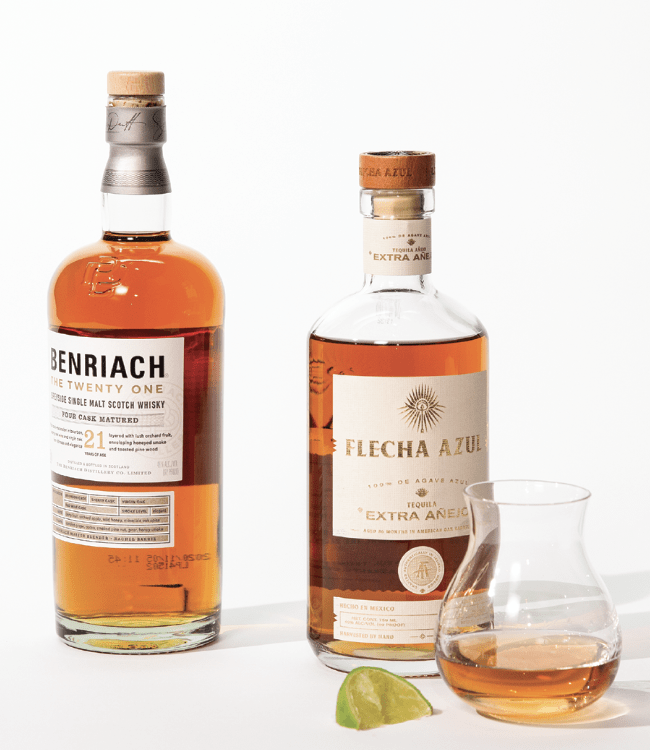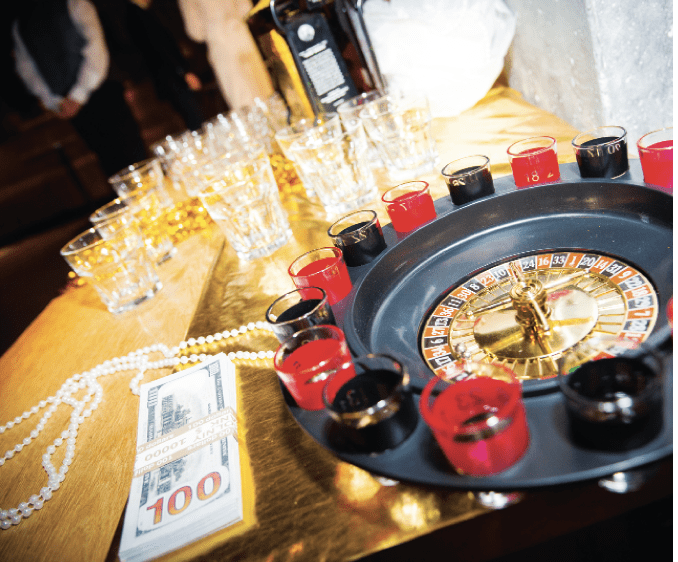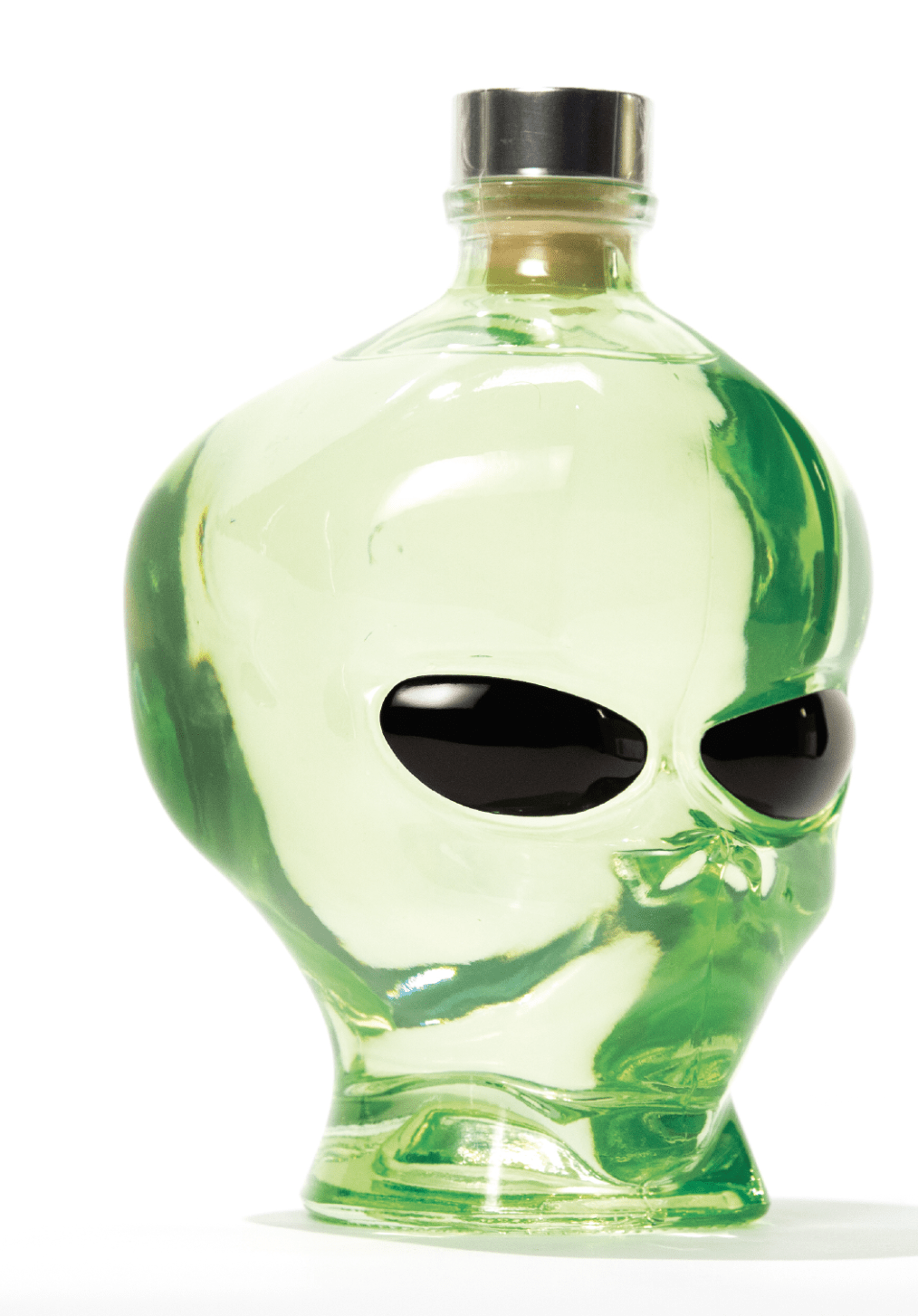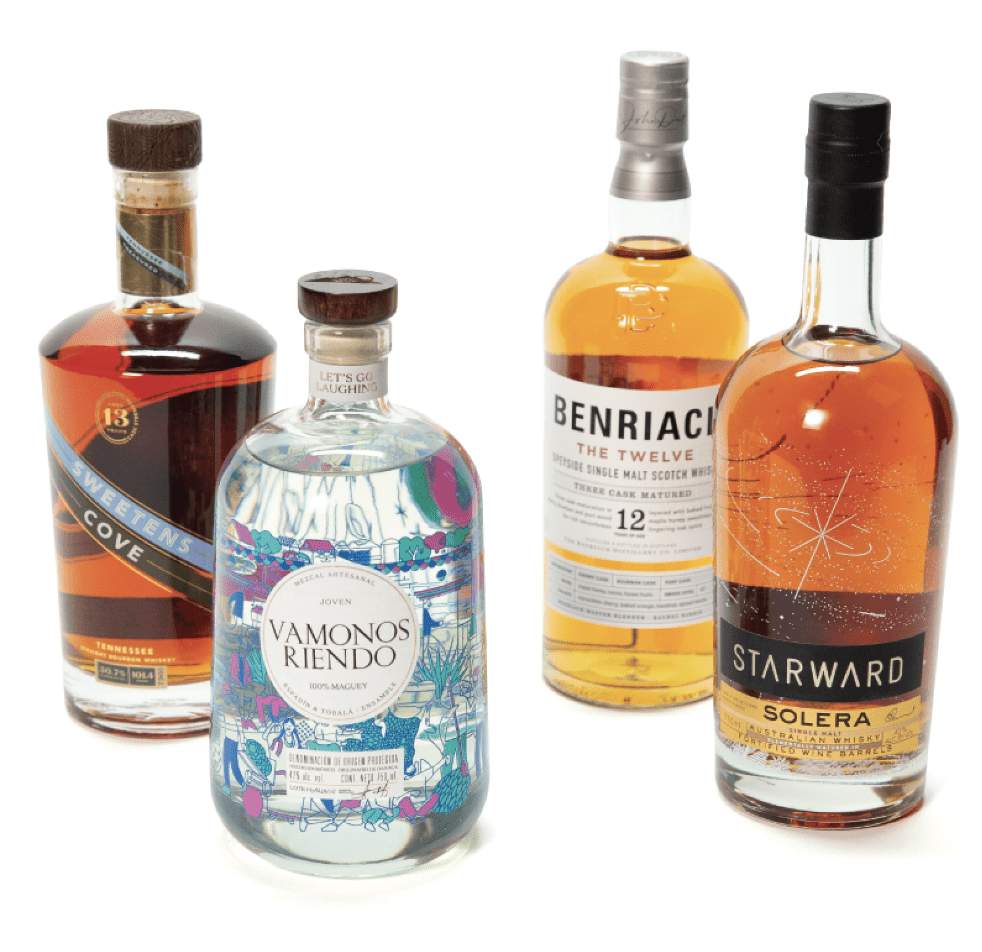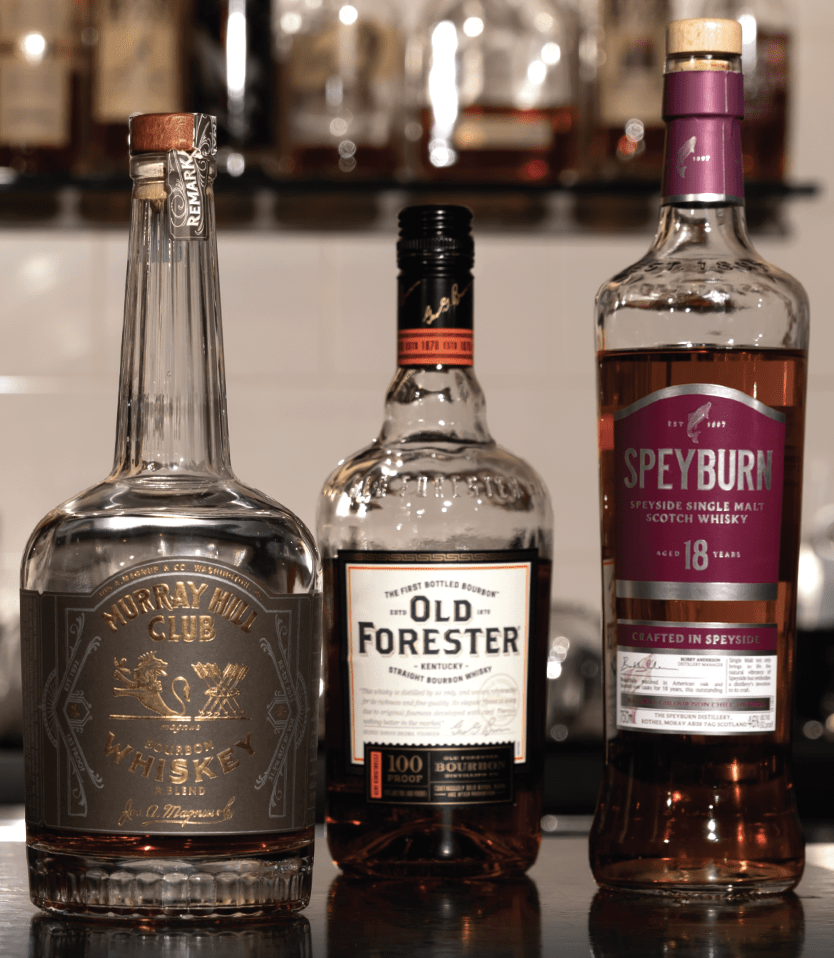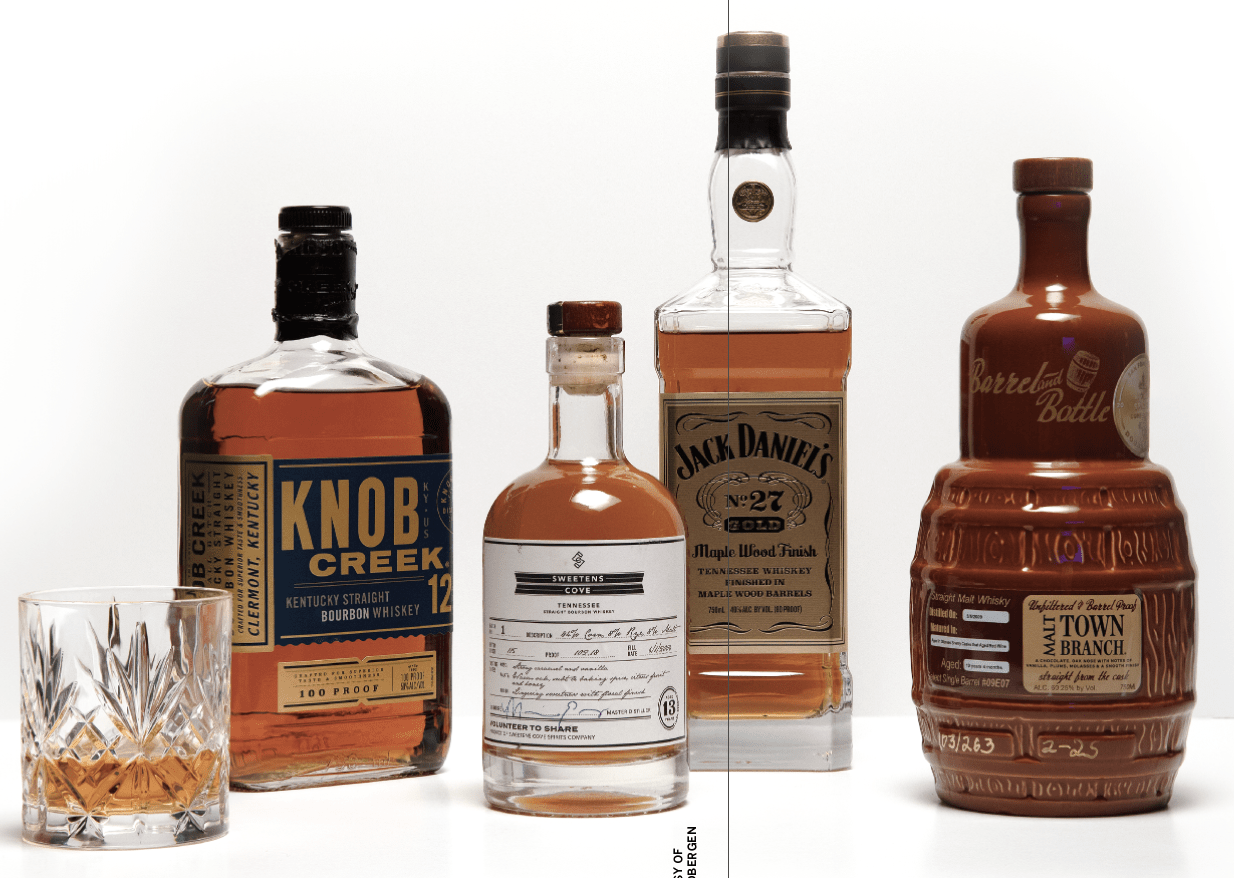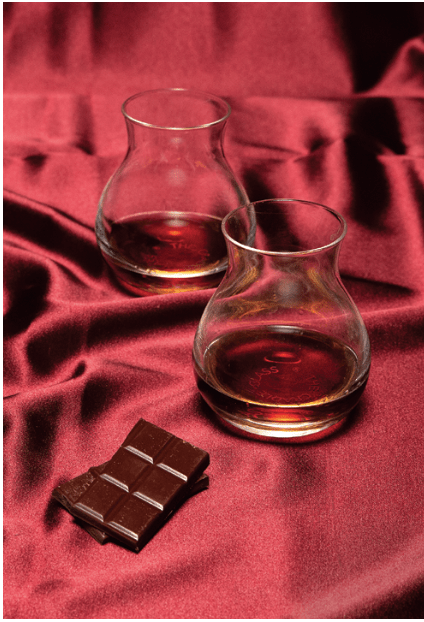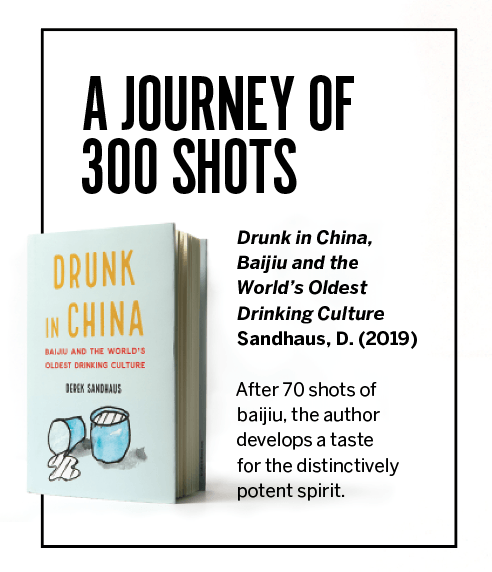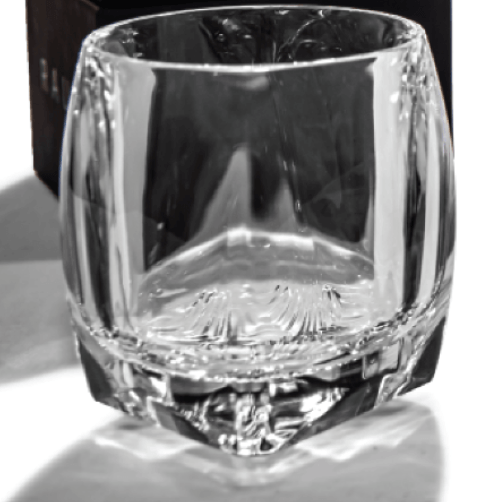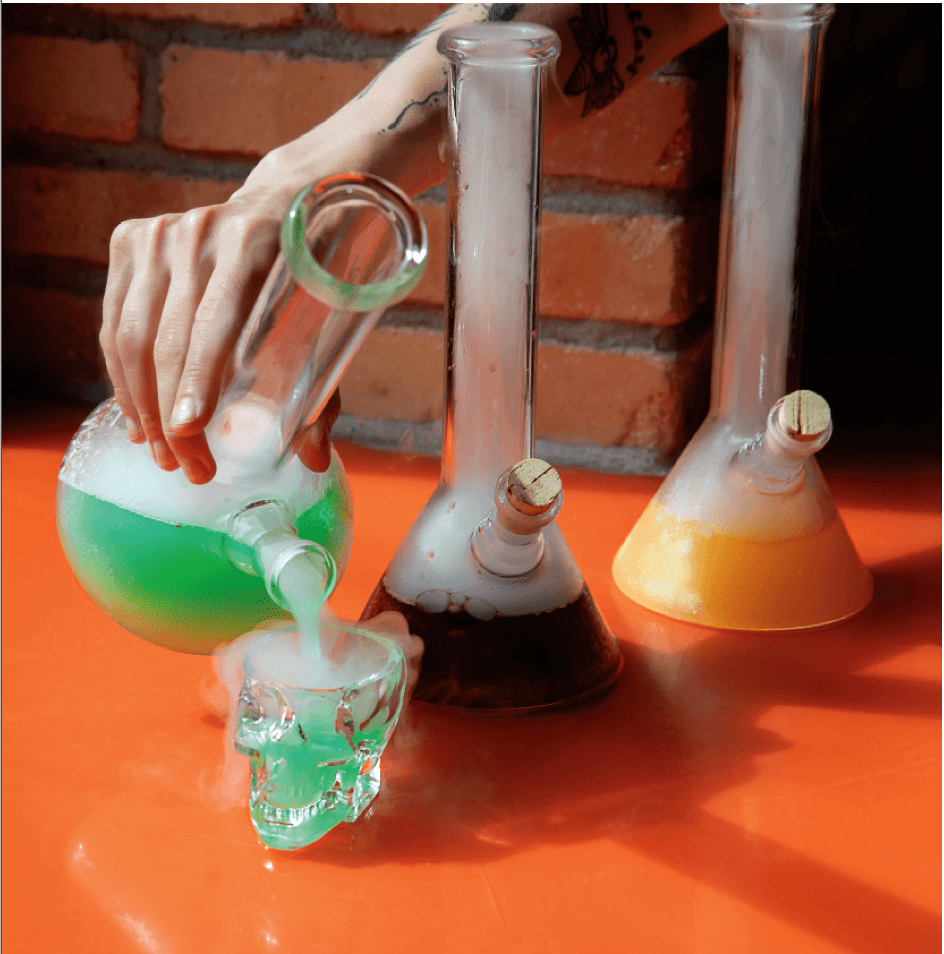Big Sip Energy
Coffee, tea and energy drinks provide vigor and pep, but too much caffeine comes at a cost. Luckbox tested low-caffeine and caffeine-free alternatives.
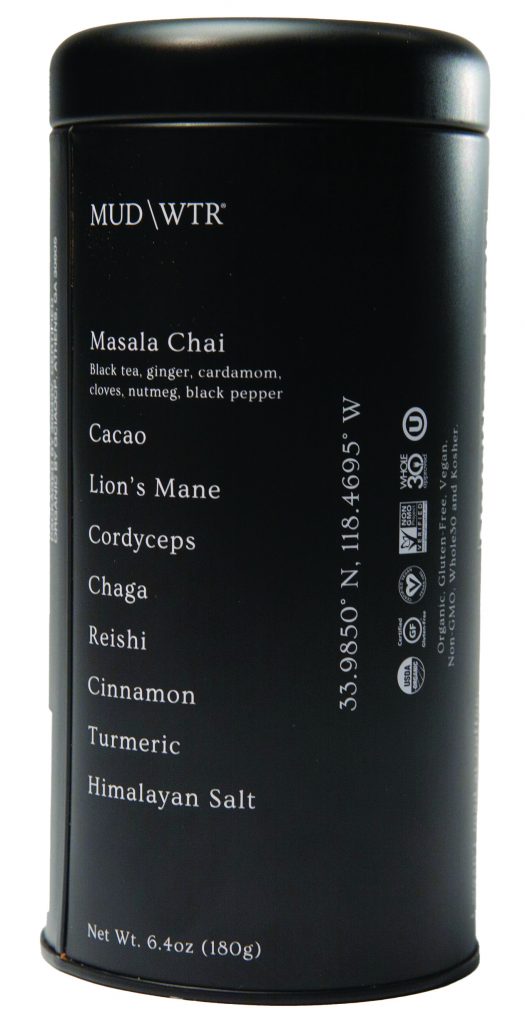
When Aristotle said “the energy of the mind is the essence of life,” he likely wasn’t talking about caffeine—regardless of how fitting the proverb looks on a coffee mug. Nevertheless, many would argue that caffeine actually is the essence of life, particularly those dependent on coffee, tea or energy drinks to power through the day.
Americans consume over 450 million cups of coffee every day, according to HowStuffWorks. That’s 120 million more cups than there are people in the country. Meanwhile, energy drinks represent 31% of the dollar sales of packaged beverages sold at convenience stores, according to Statista.
Experts from the realms of medicine and chemistry, including those at the American Chemical Society, agree: Caffeine is the most popular psychoactive drug in the world. But too much of any good thing can be harmful—sugary energy-boosting stimulants not excepted.
One can’t help but wonder: After how many espresso shots should the line be drawn in the grounds?
Mayo Clinic staff suggest that up to 400 milligrams of caffeine a day should be safe for most adults. For context, an 8-ounce cup of coffee contains anywhere from 70 milligrams to 140 milligrams of caffeine. By comparison, a 12-ounce Red Bull contains about 114 milligrams of caffeine.
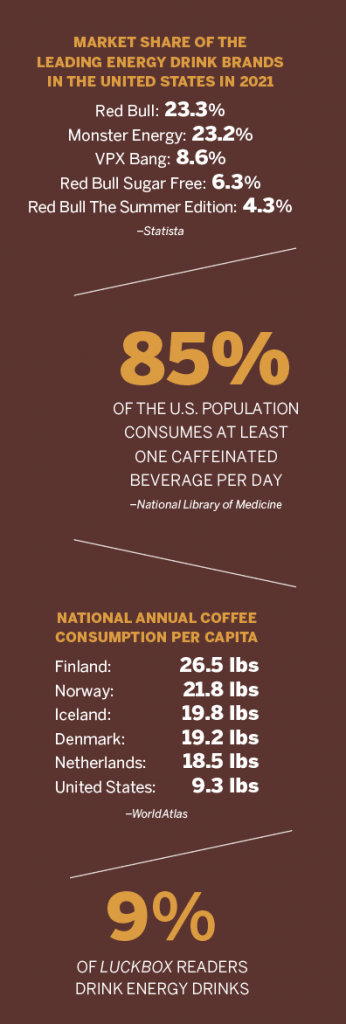
Habitual Starbucks espresso drinkers may be surprised to learn that each shot adds about 75 milligrams of caffeine to a drink. By the sixth shot, they’ve already exceeded the daily recommended caffeine dose, and too much caffeine can result in headaches, sleeplessness, irritability, a fast heartbeat and muscle tremors, to name just a few adverse side effects.
The editors at Luckbox are no strangers to caffeinated drinks—or drinking too many of them on occasion. So, we sought out and tested a variety of low-caffeine and caffeine-free alternatives that boast energy-boosting properties without the unwanted side effects and sugar. These were our favorites.
MUD\WTR
Don’t let the name fool you—if all mud tasted like this, we’d recommend buying a shovel. Made up of powdered mushrooms—including lion’s mane, reishi, cordyceps and chaga—as well as chai, cacao, cinnamon and turmeric, MUD\WTR offers a clean and natural energy kick with just one-seventh the caffeine of a cup of coffee. The texture gets gritty as the concoction settles, but the rich chai and cacao flavors make up for it.
$50 (30 servings) at mudwtr.com
MatchaBar Ceremonial
Grade Matcha Powder
Family-farmed in Kagoshima, Japan, MatchaBar’s ceremonial grade matcha powder is the real deal. It boasts 10 times the antioxidants of traditional loose leaf green tea, and dare we say, we can taste it. Half a teaspoon of the powder is all it takes to make a smooth and balanced matcha drink with just 40 milligrams of caffeine. And because matcha releases caffeine slowly, the effects are gentle
and long-lasting.
$30 (30 servings) at matchabar.com
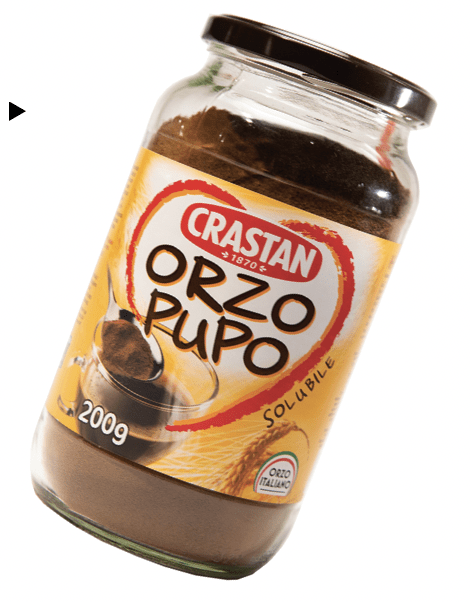
Crastan Orzo Pupo
Coffee-lovers rejoice: Of all the products tested, Crastan Orzo Pupo comes the closest to offering a coffee-like look, smell and flavor—without the bite. It’s an instant barley beverage introduced in Italy in 1968 that’s naturally caffeine-free and made up of finely ground Italian barley. It’s a full-bodied, bold coffee alternative that you can shamelessly drink before bed, but you’ll want to drink it at other times, too.
$15 (20 servings) at amazon.com
Firebelly Tea:
No Ordinary Joe
As far as loose leaf teas go, Firebelly’s No Ordinary Joe is a standout. Made up of roasted mate, dark cocoa, roasted chicory, licorice and dandelion root, No Ordinary Joe lives up to its name by offering a complex flavor profile that’s a step up from most coffee-based beverages. Antioxidant-rich and bolstered by the roasted mate’s subtle energy boost, this is a tea that coffee and tea drinkers alike can—and will—fall in love with.
$20 (25-30 servings) at firebellytea.com
Guayaki Yerba Mate
Native to—and popular in—South America, yerba mate is a type of herbal drink rich in vitamins, minerals and amino acids. Its flavor is reminiscent of loose leaf green tea, but mate is much less bitter and offers a fresh, earthy taste. One of Guayaki’s organic mate bags offers 40 milligrams of caffeine, and you’ll likely find yourself drinking more than one. It’s the stuff of South American legend, and we totally understand why.
$20 (75 bags) at guayaki.com
